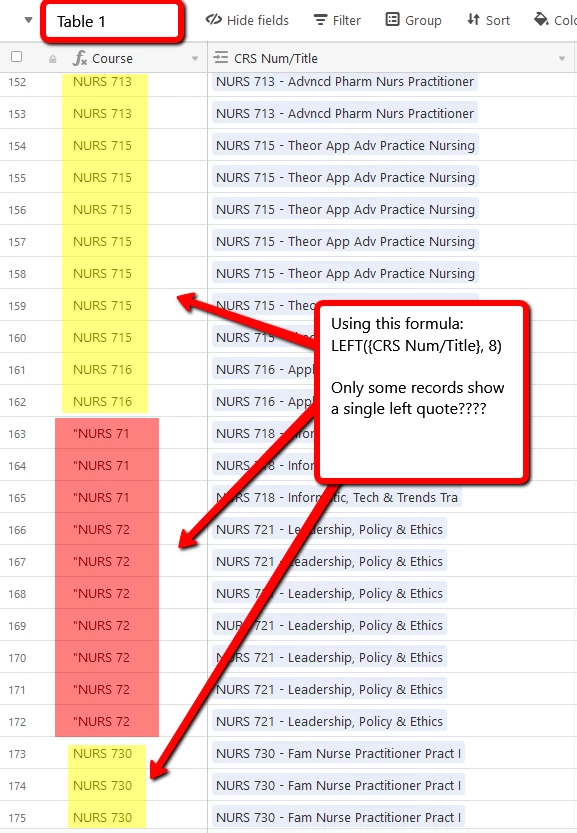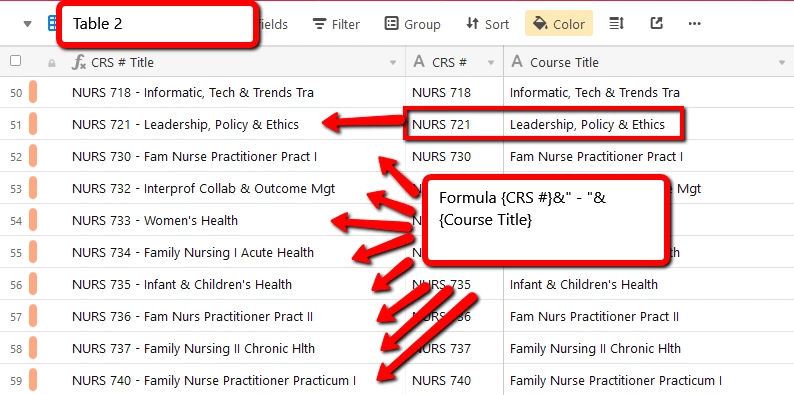I’m trying to use the LEFT formula to extract the first 8 characters of a linked record. All works well except for in Table 1 you see some of the records are including a single quote on the left side. It’s weird that not all the records are doing this.

Table 2 is where the linked record comes from it is also using a formula:

Airtable support gave me the following instructions and I’m having a difficult time understanding what they mean?
When referencing a linked record in a formula, a comma always triggers quotations around a linked record. To remove those, you can wrap the field in SUBSTITUTE() as in SUBSTITUTE({FIELDNAME},"\\"","") to get rid of the quotes.
Any thoughts anyone?
Thanks in advance for helping out this not to formula savvy individual!


